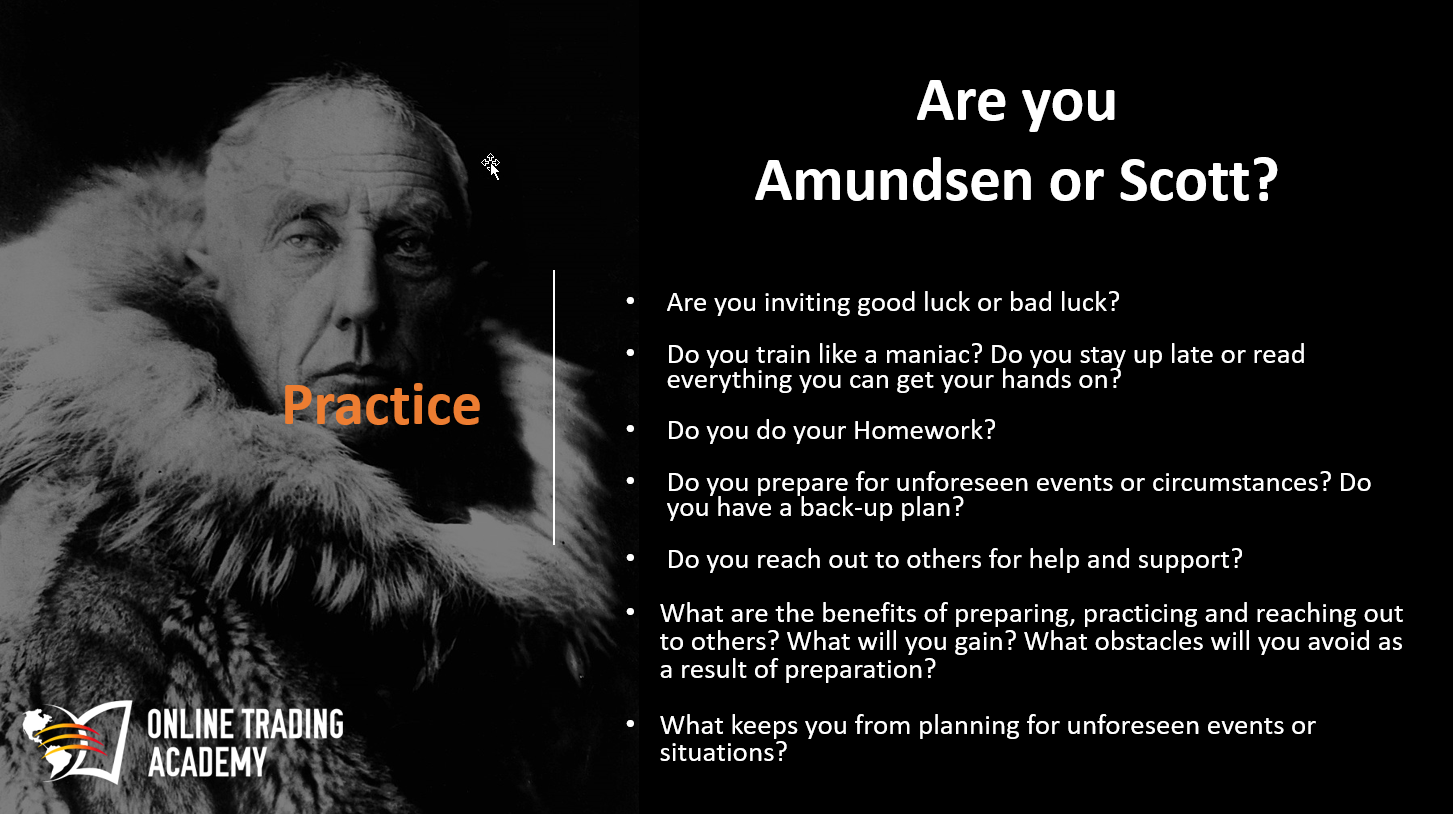Are you Amundsen or Scott?

Luck is defined as success or failure brought by chance rather than through one's own actions. But luck is a lot less random than you think. Much of what is considered luck is actually good preparation, training, and doing one’s homework. The reverse is also true. Much of what is written-off as bad luck is in actuality, bad preparation, bad training and not doing the work.
When people are faced with a challenge, a new learning experience or uncertainty, it is intense planning and a willingness to alter course when necessary that will trump attitude, determination and courage every time. This could not be more evident in the 1911 Race to the South Pole.
Over 100 years ago, a British team of explorers lead by Royal Navy Officer Robert Scott was defeated by Norwegian explorer, Roald Amundsen’s and his team in the race to the South Pole.
- Both men were of similar ages: Amundsen was 39 and Scott 43.
- Both men had similar adventuring experience.
- Both men left their base camps at the same time.
- Both men had the same destination.
- Both men experienced the same percentage of bad weather days to good: 56%.
And yet one man led his team to victory, while the other to his demise!
How?
The defeat was a difference in strategy and leadership!
- Amundsen systematically built enormous buffers for unforeseen events. Scott did not!
- Amundsen presumed bad events might strike his team somewhere along the journey, and he prepared for them. Scott depended on attitude and reputation.
- Amundsen brought four thermometers (key altitude-measurement devices). Scott brought one, and it broke.
- Amundsen used dog sleds and skis. Scott had made the mistake of investing in the first mechanized ice-sleds, which were not tested for sub-zero temperatures. They broke too.
- Scott wore the newest and latest rubber coats designed for cold weather. They froze.
- Amundsen followed the Alaskan Inuit’s who have lived in the icy cold for thousands of years and wore fur. They survived.
Ironically, before and after the tragedy, Scott was even seen as a National Hero. He had a positive, outgoing and optimistic demeanor. The British people loved him. Amundsen, on the other hand, was more introverted and reflective. He was not favored to win. Scott’s demise was seen as an unhappy accident, or bad luck by many over the years, instead of what it was: poor planning! Although Amundsen was not villainized, he did not return the hero until many years later upon closer inspection of the differences in how each man prepared for the journey.
As Amundsen is quoted saying, “Victory awaits him who has everything in order; (good) luck people call it. Defeat is certain for him who has neglected to take the necessary precautions in time; this is called bad luck.”

- Are you Amundsen or Scott?
- Do you train like a maniac? Do you stay up late or read everything you can get your hands on?
- Do you do your homework?
- Do you prepare for unforeseen events or circumstances? Do you have a back-up plan?
- Do you reach out to co-workers for help and support?
If you answered yes to all of these questions, congratulations, you are definitely Amundsen. Understanding yourself and the importance of planning and building buffers for unforeseen events will help you to succeed in both your life and career this new year.
Happy planning and good luck!